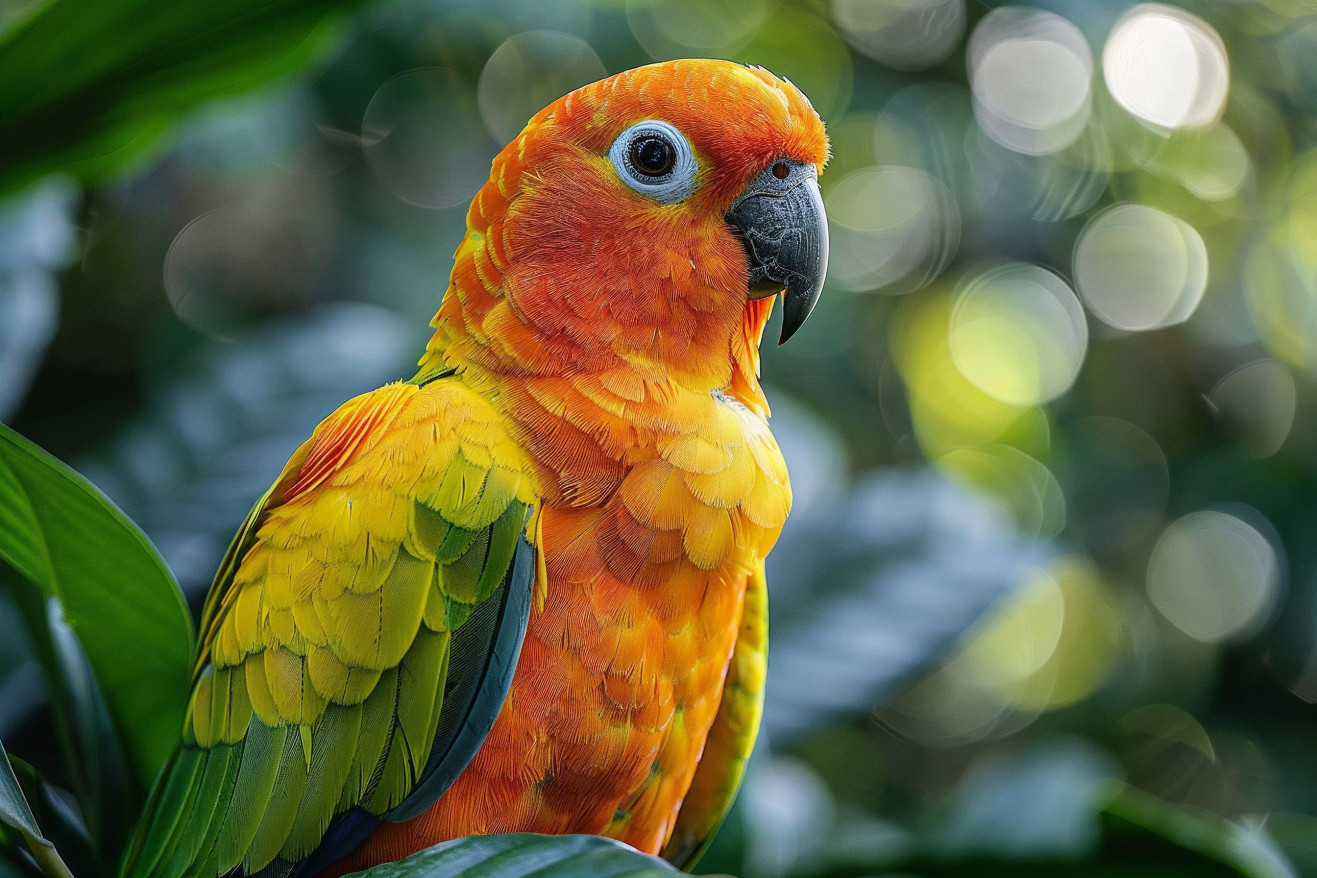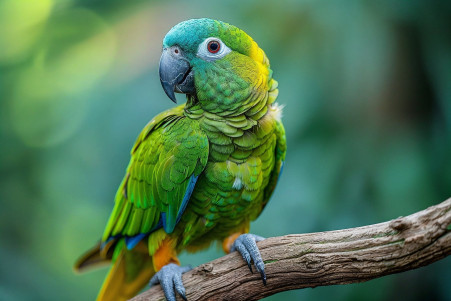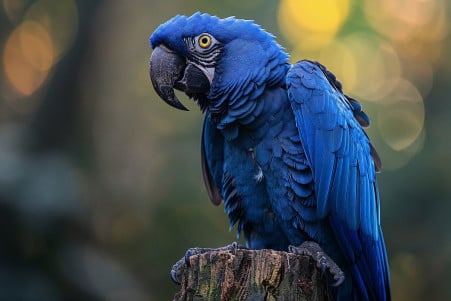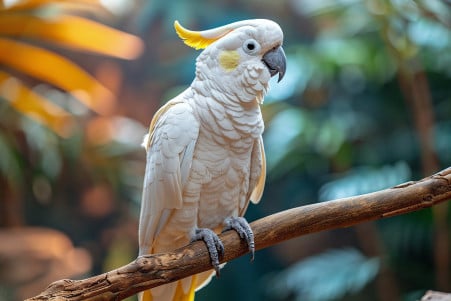Sun Conure Life Expectancy: How Long Do These Colorful Parrots Live?
10 June 2024 • Updated 10 June 2024

How many years can you look forward to having a sun conure parrot as part of your family? Sun conures are small to medium-sized parrots with an average life expectancy of 25-30 years in captivity. However, with the right diet, living conditions, and medical attention, these colorful birds can live for more than 25 years as lively pets.
Drawing on studies from avian researchers, veterinarians, and even sun conure enthusiasts, we will explore the most important factors that determine how long a sun conure will live. From what they eat and where they live to their genetics and common health problems, this article will help you ensure that your sun conure has a fulfilling life and the best chance of living a long, healthy life.
What is the average lifespan of a sun conure?
Nutritional Needs for Optimal Health
A healthy diet is essential for sun conures to get the nutrients they need to thrive. According to Petco, seeds are nutritionally inadequate and should only be a small part of their diet. The recommended diet, per VCA Animal Hospitals, is 75-80% high-quality pelleted food made for birds, which should be supplemented with fresh fruits, vegetables, and greens.
Some foods, including avocado, chocolate, and caffeine, are toxic to sun conures, according to Petco. In addition, Lafeber Co. recommends that sun conures are given fresh water daily and that separate bowls are used for dry food, fresh food, and water. Proper nutrition is essential for helping sun conures live long, healthy lives by preventing deficiencies and nutrition-related health problems, which are common, according to VCA Animal Hospitals.
Housing and Environmental Requirements
Sun conures should be kept in a medium-sized wire cage that is at least 35"(W) x 20"(D) x 35"(H), according to Kellyville Pets. The cage should have an open top and be covered at night to prevent drafts, according to the same source.
According to The Spruce Pets, safe play areas outside of the cage are important for exercise and mental stimulation. Meanwhile, Lafeber Co. notes that a variety of toys and natural perches will help keep sun conures from getting bored and encourage natural behaviors.
As noted by The Spruce Pets, proper exercise, including at least 3 hours outside of the cage each day, is important for the birds' overall health and well-being. This active bird will enjoy learning to do tricks and will be happiest in a large cage.
Behavior and Temperament
Sun conures are very social birds that will bond closely with their human caregivers in captivity, according to WebMD. They are also intelligent and inquisitive, so they need lots of toys and other forms of enrichment to keep them from getting bored and developing behavioral issues, notes Lafeber Co.
Sun conures are also known for their loud, high-pitched calls, especially when they are flying or excited, explains WebMD. They can be hesitant to try new foods, so it may take time and persistence to get them to accept a new diet, according to the same source.
Because of their high energy levels and sometimes demanding nature, sun conures benefit from socialization and positive reinforcement training, says Lafeber Co. Knowing these things about their behavior will help you make sure you give your sun conure the care and living situation they need to be healthy and happy for as long as possible.
Conservation Status and Threats
The sun conure (Aratinga solstitialis) is listed as Vulnerable on the IUCN Red List due to habitat loss, degradation, and trapping for the pet trade, according to the World Parrot Trust. Wild populations have fallen by 30-49% over the last three generations, and some local populations have already disappeared, according to Bird Street Bistro.
Deforestation and the illegal pet trade are the main threats to the sun conure in its native habitat in northeastern Brazil, as explained by the Parrot Encyclopedia. Conservation priorities include protecting the remaining habitat, fighting the illegal wildlife trade, and education, according to the World Parrot Trust.
Responsible breeding and care of captive sun conures is also important for the species' long-term survival, according to Bird Street Bistro. With the right protections and conservation strategies in place, this colorful parrot has a chance for a better tomorrow.
Health Concerns and Potential Problems
Sun conures are susceptible to common health problems like psittacosis, a bacterial lung disease, as well as respiratory and bacterial infections, per Kellyville Pets. Signs of potential health issues include fluffed feathers, nasal discharge, lethargy, and abnormal behavior or droppings, according to the same source.
Regular vet visits and treatment for any health issues that arise are important to ensure these birds live long, healthy lives, which can be 25-30 years with proper care. As Kellyville Pets points out, many health problems can be avoided and the lifespan of a sun conure can be extended with proper nutrition, housing, and stress management.
Owners should also be aware of the potential financial and time commitments that come with caring for a sun conure for the many years of their life. However, with the right care and preventative measures, these colorful birds can make great lifelong pets.
Conclusion: A Lifetime of Care
Sun conures are colorful, active birds that can be wonderful pets for over 25 years if properly cared for. According to PetMD, sun conures can live up to 30 years in captivity if they are in the right conditions. However, it’s important to make sure they have the right diet, housing, enrichment, and medical care to ensure that they live as long as possible.
Knowing their natural behaviors, personality traits, and common health problems can help pet parents make sure they are ready to meet their long-term needs. The World Parrot Trust points out that sun conures are considered Vulnerable due to habitat loss and the illegal pet trade, so it’s important to make sure that they are responsibly owned and bred to help protect the species.
Potential pet parents should make sure they are ready for the lifetime commitment of owning a sun conure. While these colorful birds can be wonderful pets for over 25 years, they need to be well cared for. With the right care and precautions, sun conures can live long, happy lives as part of the family.


